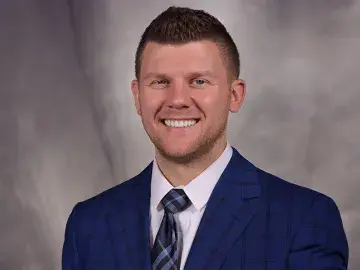Student Nurses Learn Reality of Living with Mental Illness
Most students learn about mental health through textbooks and classroom lectures. But each year, some Samuel Merritt University (SMU) nursing students take a creative, experiential approach to understanding what it’s like to suffer from serious mental illness.
In a course in SMU’s Entry Level Master of Science in Nursing program, each student reads a memoir that offers an intimate account of living with a mental illness such as bipolar disorder, depression or schizophrenia. Small groups of students then create a short film, based on the book, in which they play the roles of the patient and friends, family members or healthcare providers.
To mark the end of their mental health clinical rotations, the students show their videos and lead a class discussion about the symptoms of mental illness, diagnosis and treatment options, and ethical dilemmas.
“Delving into these stories of suffering and resilience provides rich soil for the student to grow in their knowledge of the lived experience of mental illness,” said Assistant Professor Marjorie Hammer, who teaches the mental health course for first-semester, pre-licensure students on SMU’s Oakland campus.
Hammer said she initiated the “Grand Rounds Word-for-Word Film Festival” five years ago to improve her students’ ability to assess mental health through a better understanding of the challenges faced by both patients and their clinicians. Films created by the students follow the method used by Word for Word, a Bay Area theater group that takes excerpts, including whole chapters and scenes, from literature and uses the words as written as the script for plays.
One group of students read the book The Center Cannot Hold: My Journey Through Madness, which chronicles author Elyn Saks’ struggles with schizophrenia before becoming a successful legal scholar and mental health expert.
“The memoir taught me how isolating schizophrenia or having mental illness can be,” said student Perla Camacho.
In their film, Camacho and three other students acted out the author’s first experience with auditory hallucinations as a teenager using special effects to show how the buildings she passed on a walk home from school were sending her messages. Another scene revealed a psychotic break Saks had as a law student, when her bizarre behavior so alarmed her classmates that she was committed to a psychiatric ward for months.
Student Jon Kanetsky said immersing himself in Saks’ story was a “big mind-opening experience” because previously he didn’t think people with schizophrenia could be as a high-functioning as the author, who is now a professor of law, psychology, and psychiatry at the University of Southern California Gould Law School.
“It’s amazing how far people can come with the right treatments,” said Kanetsky.
In another film based on An Unquiet Mind, a memoir by Kay Redfield Jamison about coping with bipolar disorder, students used a fast-motion technique to portray a manic episode experienced by the author when she repeatedly darted across a UCLA parking lot in the middle of the night. “I was running fast, but slowly going mad,” the students quote Jamison from her book.
In a class conversation after the film, students debated the ethical issues of healthcare providers suffering from uncontrolled mental health conditions since Jamison was a practicing psychiatrist when she was experiencing mania and considering suicide. At the same time, several students credited Jamison for being open about her mental health problems.
“The most amazing thing to see was how many of her co-workers were supportive of her,” said student Jaspreet Bains. “You think there’s a stigma and you can’t be successful, but you can if you’re open.”
Other books explored in the course dealt with mental health issues including drug addiction, anorexia, borderline personality disorder, and health disparities in the treatment of African Americans with depression.
“Without proper diagnosis and treatment, lives can be at stake,” student Shelby McCray told the class. “Don’t be lazy practitioners.”


